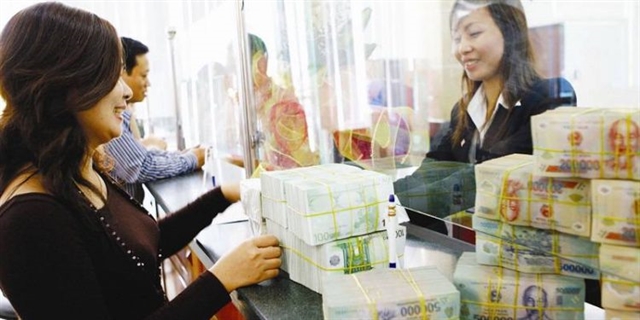Commercial banks cut interest rates on VND980 trillion (US$42.6 billion) of loans to support 318,000 COVID-19 affected individual and corporate borrowers by the end of April.

Commercial banks cut interest rates on VND980 trillion (US$42.6 billion) of loans to support 318,000 COVID-19 affected individual and corporate borrowers by the end of April, the latest data from the State Bank of Viet Nam (SBV) showed.
The interest rate reduction was commonly 0.5-2 percentage points per year. Some credit institutions even offered a higher rate cut of 2.5-4 percentage points per year.
It was estimated if the banks cut the rate by 1 percentage points on average for the VND980 trillion in loans, their profits will be lowered by at least VND100 trillion.
By the end of April, banks also rescheduled debt repayments for more than 170,000 customers with loans of nearly VND130 trillion, according to the SBV’s data.
The SBV has required commercial banks to further simplify lending procedures to help COVID-19-affected firms easily access preferential interest rate loans. However, he noted, banks must still meet lending standards to ensure the safety and stability of the financial and banking system.
Some businesses have recently claimed they could not access new loan packages with preferential interest rates due to their failure to meet banks’ lending standards and proposed that banks ease lending rules.
However, Nghiem Xuan Thanh, chairman of Vietcombank, said most companies that could not access the package are inefficiently operating their businesses.
Banks would not ease lending standards as they must avoid risks, Thanh noted, explaining that the package does not come from the State budget but from commercial banks.
Echoing Thanh, Tran Hoang Ngan, head of the HCMC Economic Development Institute, said banks were themselves businesses so they were always afraid of bad debts.
According to Nguyen Quoc Hung, director of the SBV’s Credit Department, in the current situation, it is forecast the bad debt ratio of the banking system will increase this year and negatively affect the country’s plans to deal with bad debts and recover poor-performing banks. — VNS





